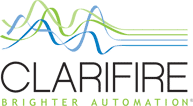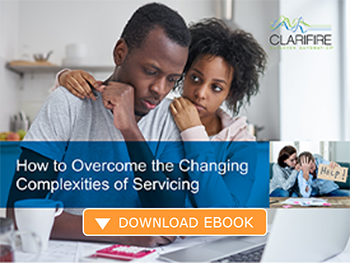As servicers grapple with the numerous temporary “flexibilities” and “accommodations” that have been recently issued, accurately adhering to credit reporting requirements under COVID-19 may create long term issues for servicers, credit reporting agencies, and consumers. The credit protection offered under the Coronavirus Aid, Relief, and Economic Security Act (CARES) is fairly nuanced from an implementation perspective and will require significant attention to requirements, implementation, and reporting.

Although recently enacted on March 27, 2020, the credit reporting provisions under CARES are retroactive back to January 31, 2020, creating what could be the first in a series of disparities in credit reporting uniformity. This lack of alignment occurs in several varied areas and may easily impact credit reporting results, and the consumer, for quite some time to come.
The CARES Act, in conjunction with credit coding requirements that fall under the Consumer Data Industry Association (CDIA), has created a layering of coding guidelines that overlap and yet are mutually exclusive. Even if we put guidance aside from regulatory agencies (including state banking regulators, government agencies, investors, and credit reporting agencies), mortgage servicers are still left with a lack of clarity and numerous unanswered questions.
Managing Reporting Uniformity under CARES
“Furnishers,” which includes mortgage servicers, must be extremely diligent in efforts to implement CARES credit reporting requirements to servicing platforms, as well as adjacent systems and solutions. It behooves our industry at large to seriously consider the complexity of operational logistics behind requirement analysis that includes, but is not limited to, the following:
- Retroactive reporting is required on consumers that have COVID-19 related delinquency that occurred between January 31 and March 27. How will servicers ensure they’ve accurately identified and documented all loans in this category?
- Loan Agreements are created as a result of an accommodation. CARES states that an “accommodation” is made by “agreement” and an accommodation/agreement must be reported as a new loan. How is the original loan reported? How will this impact the borrower credit profile if additional credit is added?
- Disaster codes are alluded to but not mandated under CARES. When and where will servicers opt to implement a disaster code to help identify and track accommodations and/or agreements under CARES?
- Trade line guidelines on how to reflect a new accommodation/agreement, including loans that are modified, deferred, or put in forbearance, are not clearly articulated. How will trade lines be managed? Will some trade lines be hidden, deleted, or replaced?
- Special comment codes are not mandated under CARES but do exist. Should “furnishers” forgo using special comment codes since they are not required under CARES? How does the industry create consistency and understanding of codes in terms of use and meaning under COVID-19?
- Account status values, reported at the same value from accommodation onset throughout its course, are a CARES requirement that closely mimics CDIA bankruptcy reporting requirements. If a loan goes into COVID-19 status and remains at 30-day delinquent status, but conceivably moves out of the crisis status inside of a month, how is it reported and has the borrower gained any benefit?
Considering CDIA Credit Codes
In addition to Section 4021 of the CARES Act, guidance for consumer reporting agencies is provided by the CDIA in their fact sheet entitled, “Helping Consumers Avoid Credit Problems if Impacted by Coronavirus (COVID-19).” The CDIA addresses how to direct consumers and report to credit bureaus. They also reference the effect of COVID-19 forbearance and deferment on credit scoring, concluding that based on experience in handling natural disasters, “there is no negative scoring impact.”
- Forbearance and deferred payment neutrality is referenced by FICO in a statement from their recent blog which says “the placement and reporting of an account in forbearance or a deferred payment plan in and of itself does not negatively impact a FICO® Score.” How does this play out for the consumer when in fact FICO goes on to say that scores do consider history of payments, current balance, payment status, and possibly other information/statuses provided by the servicer?
- The Metro-2 Format for Credit Reporting (Metro 2®) provides specific credit data reporting formats and codes as outlined by the CDIA. How will existing Metro 2® codes be reconciled with codes implemented under CARES? How will code formats required by the various states be addressed?
- Consumers are impacted as they inherently assume their delinquency issues are handled once they call their mortgage servicer. When in fact, the multiple layering of requirements and the temporary nature of COVID-19 relief will increase the likelihood of errors, from loan accommodations and agreements, to credit report coding. With a resurgence of credit access issues, how will this all play out for borrowers? Will it take another decade to return to some sort of normalcy?
CLARIFIRE® Workflow
Servicers need to look beyond the myriad of COVID-19 questions and prepare to aggressively manage through this time of disruption with innovation. There isn’t time to look for the gaps in your existing systems, but rather now more than ever, envision your servicing infrastructure as a unified, dynamic, and transparent solution. Tap the data and processes that are moving throughout your organization and overlay intelligent logic and workout decisioning to prepare, automatically approve, and make auditable the approach your organization is making. Push beyond traditional strategies, as well as business approaches for technology implementation, by selecting CLARIFIRE®, a proven and relevant SaaS-based workflow provider that is prepared to make this a reality for your organization.
To find out more about how your organization can surpass the challenges of unanswered COVID-19 questions, contact us directly at 866.222.3370 or visit us at eClarifire.com.
Let us show you how to future-proof your organization with CLARIFIRE®.
Read these blogs and articles next
- It’s Time to Bring Mobile Access to Your Servicing Back Office
- COVID-19 - The New Natural Disaster
- Do You Know What the New Decade Holds for Customer-Centric Servicing?



